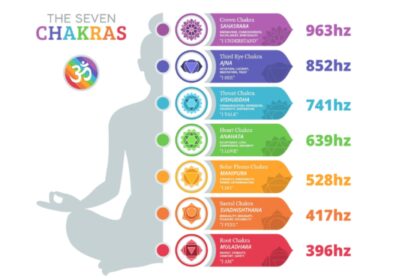In today’s fast-paced and technology-driven world, sitting for prolonged periods has become an integral part of our daily routines. From commuting to work, sitting at our desks, attending meetings, to relaxing at home in front of screens, we spend more time on our seats than ever before.
However, the mounting evidence surrounding the adverse effects of excessive sitting on our health has given rise to growing concerns among health professionals and researchers.
Sedentary behavior, characterized by long periods of low-energy sitting or reclining, has become a norm in our modern society. This shift towards a more sedentary lifestyle is driven by technological advancements, urbanization, and changes in our work and leisure activities.
Unfortunately, our bodies are not designed to handle extended periods of inactivity, and this prolonged sitting has significant implications for our overall health and well-being.
The Impact of Prolonged Sitting on Health:
- Cardiovascular Health: Extended periods of sitting contribute to poor blood circulation, as the muscles burn less fat and blood flows at a slower rate. Over time, this can lead to the build-up of fatty acids in the blood vessels, increasing the risk of heart disease and related cardiovascular issues.
- Metabolic Health: Prolonged sitting not only reduces fat burning but also affects glucose metabolism. Blood sugar levels rise when we sit for too long, which may lead to insulin resistance and an increased risk of type 2 diabetes.
- Mortality Risk: Research has indicated that even individuals who engage in regular exercise are not exempt from the risks of prolonged sitting. Studies have found a positive association between sedentary behavior and premature mortality, emphasizing the importance of reducing sitting time in our daily lives.
- Cancer Risk: Sedentary behavior has been linked to an increased risk of certain cancers, including colon, breast, and endometrial cancer. Elevated insulin levels and inflammation associated with prolonged sitting may contribute to cancer development.
- Pancreatic Function: The pancreas plays a crucial role in insulin production. Prolonged sitting can disrupt insulin response, leading to overproduction of insulin and potentially straining the pancreas over time.
- Weight Management: Sitting for long periods leads to reduced calorie burning, which can contribute to weight gain and obesity. Standing burns more calories than sitting, and incorporating more movement throughout the day can help manage body weight.
- Musculoskeletal Issues: Prolonged sitting can lead to muscle imbalances and strains, particularly in the neck, shoulders, and back. Poor posture, often associated with sitting, can contribute to chronic pain and musculoskeletal disorders.
- Spinal Health: Sitting for extended periods can place increased pressure on the spine, leading to disc compression and potential spinal issues over time.
- Brain Function: Physical activity has been shown to enhance brain function, memory, and cognitive performance. In contrast, sedentary behavior may slow down brain functionality and negatively impact productivity and mood.
- Depression and Anxiety: Some studies have suggested a link between prolonged sitting and mental health issues, such as depression and anxiety. Regular physical activity has mood-enhancing effects, and reducing sedentary time may positively influence mental well-being.
- Physical Fitness: Sedentary behavior can lead to muscle degeneration and reduced physical fitness levels. Weak muscles, particularly in the core, hips, and legs, can result in reduced stability, balance, and an increased risk of injuries.
Strategies to Reduce Prolonged Sitting:
- Active Workstations: Consider using standing desks or adjustable workstations that allow you to alternate between sitting and standing during the day.
- Regular Movement Breaks: Set alarms or reminders to take short movement breaks every hour. Stand up, stretch, walk around, or perform simple exercises to break up prolonged sitting periods.
- Incorporate Physical Activity: Aim for at least 150 minutes of moderate-intensity aerobic activity or 75 minutes of vigorous-intensity aerobic activity per week, along with muscle-strengthening activities on two or more days a week.
- Break Up Sedentary Time: Avoid sitting for more than 30 minutes at a stretch. Stand up, walk around, or perform light activities to interrupt prolonged sitting.
- Active Commuting: If possible, walk or bike to work, or consider using public transportation and walking part of the way.
- Outdoor Activities: Spend time outdoors engaging in physical activities such as walking, jogging, cycling, or playing sports.
- Group Exercise: Join fitness classes or sports teams to make physical activity more enjoyable and social.
- Household Chores: Engage in household activities that require movement, such as gardening, cleaning, or DIY projects.
- Mindful Sitting: If you must sit for extended periods, practice good posture and take short breaks to stand up and stretch.
- Family and Pet Time: Spend quality time with family and pets engaging in active play or outdoor activities.
- Desk Exercises: Perform simple exercises at your desk, such as leg raises, desk push-ups, or shoulder rolls, to keep your body active during work hours.
The Role of Workplace and Public Health Initiatives:
Recognizing the impact of sedentary behavior on health, many workplaces and public health organizations are taking proactive steps to promote active lifestyles. Corporate wellness programs are being implemented to encourage physical activity and reduce sitting time among employees.
Employers are providing employees with ergonomic workstations and flexible schedules to accommodate movement breaks.
Public health campaigns are raising awareness about the dangers of prolonged sitting and encouraging individuals to adopt active habits. Schools are incorporating physical education and active breaks into their curricula to instill healthy behaviors from an early age. Urban planning and infrastructure development are also being optimized to promote walking and cycling, making active transportation more accessible.
The Importance of Individual Responsibility:
While workplace and public health initiatives play a crucial role, individual responsibility is equally essential in combatting the negative effects of prolonged sitting. Being mindful of our daily habits and making small changes can significantly impact our health.
By prioritizing movement, incorporating physical activity into our routines, and reducing sedentary time, we can take charge of our well-being and contribute to a healthier society.
Conclusion:
In conclusion, excessive sitting has emerged as a significant health concern in our modern society. The adverse effects of sedentary behavior extend beyond physical health to impact mental well-being and overall quality of life.
By understanding the risks associated with prolonged sitting and adopting strategies to reduce sedentary time, we can safeguard our health, improve our productivity, and enhance our overall sense of well-being.
The collective efforts of workplaces, public health organizations, and individuals are essential in promoting an active lifestyle and creating a healthier future for generations to come. Let us take a stand against excessive sitting and embrace a lifestyle that embraces movement and vitality.





